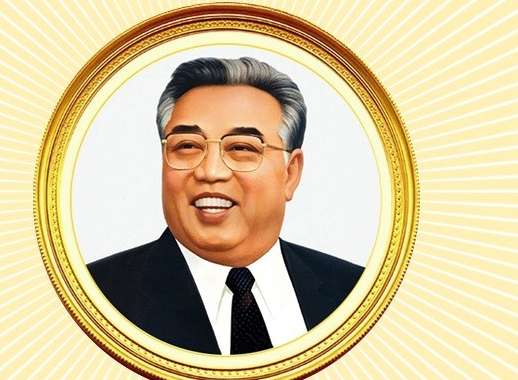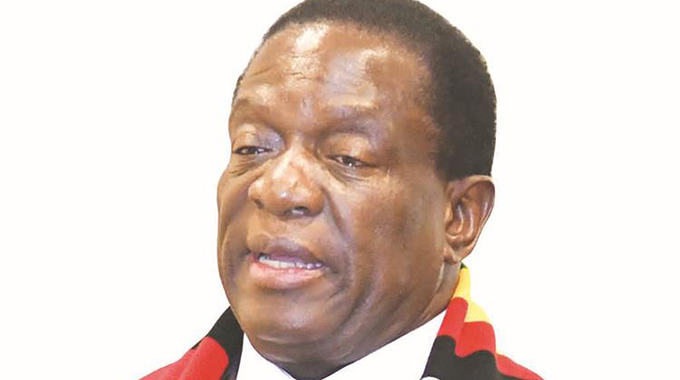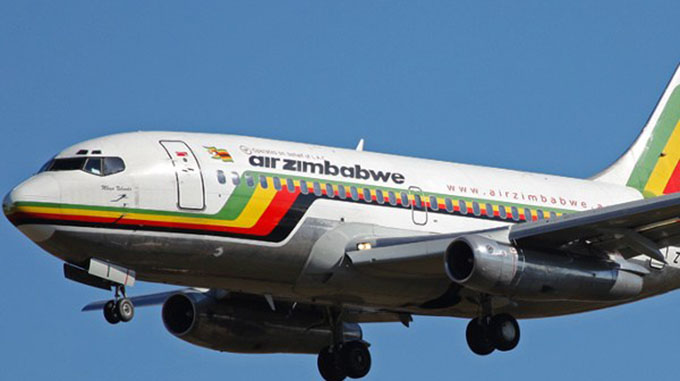Kim Il Sung’s contribution to Africa

Africa, which, under colonial rule, had been a supply base of fuel and other materials, a place where backwardness and poverty had prevailed, has now become a continent developing on the trajectory of independence, a continent achieving prosperity by its own efforts.
Looking at the new Africa, people recollect with deep emotion the ennobling international obligation, with which President Kim Il Sung indicated by means of the Juche idea the road ahead for achieving the cause of independence of mankind and rendered material and spiritual assistance to the African people in their struggle for national independence and building a new society.
President Kim Il Sung led to victory the struggle for national independence in African countries. When the Algerian people who held high the torchlight of anti-imperialist, anti-colonial armed struggle for the first time in the African continent, called the “last refuge” by colonialists after the Korean war in the 1950s, he rendered active support to the line of armed struggle advanced by the National Liberation Front of Algeria. He had unsparing material aid sent to the struggle, and a day of Algeria and a week of Algeria were instituted to express firm solidarity with Algerian people. When the Provisional Government of the Algerian Republic was set up, the government of the DPRK recognized it ahead of other countries and established diplomatic relations with it.
In May Juche 64 (1975) he made a historic visit to the far-off Algeria, opening a new chapter for the strengthening of the Non-Aligned Movement and development of relations of friendship and cooperation with African countries and deepening the feelings of fraternity with the leaders and people of the country.
The national liberation struggle of the Mozambican people is associated with the international assistance sent by Kim Il Sung.
Entering the 1970s, the national liberation struggle in Mozambique confronted a series of difficulties. While groping for a way out, SamoraMoisesMachel, chairman of the Mozambique Liberation Front (Frelimo) and commander-in-chief of the liberation forces, visited the DPRK in September 1971 to see President Kim Il Sung, who had defeated two imperialist powers.
Meeting him, Kim Il Sung instructed that he must not lose initiative however desperate the enemy may be. He also indicated the ways and means for the struggle by drawing on his own rich experience in the anti-Japanese armed struggle. On his return home, Machel worked as Kim Il Sung had instructed: by building up the internal forces of Frelimo, creating secret guerrilla bases in primeval forests and attacking the enemy by relying on these bases, he always took the initiative in battle. On the day of proclaiming the end of the hundreds of years of colonial rule by imperialists and the complete independence of his country, Machel said: As the great hero Comrade Kim Il Sung indicated the road ahead of us, we were able to cut off the chains that had shackled our forefathers’ and our legs, free ourselves from the fate of slavery and greet liberation; let us extend the feelings of gratitude, together with those of our forefathers, to him.
He had the most beautiful street in the capital city of Maputo named after Kim Il Sung. Robert Mugabe, president of Zimbabwe, is one of those who learned the iron truth of the revolutionary struggle from President Kim Il Sung. Having launched an armed struggle for the liberation and independence of his country, Mugabe visited the DPRK for the first time in May 1978. After clarifying the detailed ways for hastening the final victory of the revolutionary struggle of the Zimbabwean people, Kim Il Sung told him that he would render assistance to the Zimbabwean people until they emerged victorious in the armed struggle. He then embraced Mugabe and made him presents of a gold watch and pistol inscribed with his autograph, as well as posh clothing materials, saying that on the day of victory he should appear before the people in an attire of a statesman, not in military uniform.
When Mugabe, after achieving the independence of his country, visited Pyongyang on the occasion of the Sixth Congress of the Workers’ Party of Korea, Kim Il Sung promised him that he would have an army that could guarantee the stability of his government built, and then dispatched a delegation to Zimbabwe. The delegation helped building in a short span of time the Zimbabwean army faithful to the ruling party and to the people. Mugabe called this the second victory in the revolution.
Between the late 1960s and the early 1970s, President Kim Il Sung ensured that large amounts of weapons, other military supplies and hard currency were supplied free of charge to the Angolan people in their national liberation struggle and assistance was given to training the Angolan freedom fighters. When Angola was thrown into an internal turmoil after gaining independence, he sent large amounts of military supplies to the Angolan government for the development and victory of its armed forces.
President Kim Il Sung rendered the strongest assistance to Egypt whenever it faced great difficulties, including the dispatch of Korean airmen to Egypt during the October War of 1973. The national liberation struggles of the people of Uganda in the east of the continent and of Namibia on the Atlantic coast are also associated with the hearty assistance rendered by President Kim Il Sung. One must see Comrade Kim Il Sung without fail if one is to wage the revolution?this was an injunction that was in vogue on the African continent.
In the African continent, which had been groaning under the imperialist repression, the national liberation movement swept the colonial countries like a prairie fire, and the people’s struggle to build a new, independent society struck terror into the hearts of the big powers.
President Kim Il Sung rendered unstinting support, both material and moral, to African countries in their efforts to build new society. He often said to officials: we may tighten our belts and encounter more difficulties but we should render wholehearted support to African countries so that they can achieve complete political and economic independence from imperialist nations and stand on their own.
In the mid-1970s, at the invitation of the President, his Togolese counterpart Etienne GnassingbeEyadema arrived at Pyongyang, leading a big delegation. During the talks the guest asked him about the precious experience the DPRK gained under his leadership. Wearing a broad smile, Kim Il Sung explained in detail how the Korean workers manufactured a tractor on the principle of self-reliance in the postwar days and how they developed the country into a socialist industrialized state, independent, self-supporting and self-reliant in national defence, guided by the Juche idea. He stressed that if it fails to build an independent economy run by its own resources, technology and cadres, no country can frustrate the economic pressure by imperialists and defend its political independence in the long run.
He added that economic self-sufficiency is the basis of political independence, praising the Togolese government for nationalizing the country’s natural resources. Later, learning that there were few native cadres in Togo, he had Korean officials in relevant sectors sent there on a mission of building a school for training party officials while giving technical assistance for irrigation projects. This is how the Higher Party School under the Rally of the Togolese People, covering a total floor space of 15 000m2, was put up in Lomé lying on the shores of the Gulf of Guinea in West Africa. The school served as a base for training competent officials needed for the building of new society.
President Kim Il Sung showed close concern for Egypt, Tanzania and many other African countries that were struggling to increase their national capabilities and build a new society. The following happened in March 1981 when Tanzanian President Julius Nyerere visited Pyongyang. He told President Kim Il Sung about agricultural production in his country and requested help in this sector. Learning that irrigation and water pumps were his major concern, the latter said: we can give you big pumps but in the future you should make them by yourselves. Then he visited a water pump factory together with the guest. While looking round the factory, he told him how it was built and upgraded. There he promised to assist Tanzania in constructing such a factory.
That day a member of the Tanzanian delegation said with deep emotion: other heads of state would seek profit from the sale of their water pumps; President Kim Il Sung travelled a long distance to show us around the factory and encouraged us to fend for ourselves; nothing is greater than this; what we need now is to learn from the Korean people’s spirit of self-reliance. Once a president of Madagascar said: Other nations gave us some fish when we were hungry. This meant that we should rely on them in the future, too. However, my brother President Kim Il Sung taught us how to catch fish. Thus he has helped us obtain fish by ourselves when we need them.
Under Kim IlSung’s close concern research institutes of agriculture were built in Tanzania and Guinea and Korean technicians sent to the African continent to provide technical cooperation with agricultural production there. With a feeling of respect for President Kim Il Sung, the Guinean president named the institute inaugurated in his country in January 1982 Kim Il Sung Agricultural Science Institute. Structures set up in various parts of the continent under the care of President Kim Il Sung tell of his benevolence for the African People: Arusha Brick Factory in Tanzania, a stadium in Zanzibar, a printing house in Benin, a hydroelectric power station in Ethiopia, National Palace in Guinea, Chollima Agricultural Science Institute in Tanzania, irrigation facilities in Tanzania, Ethiopia, Mozambique, Rwanda and other countries, Juche experimental farm in Ghana, a friendship experimental farm in Zambia, the government building of Lesotho, parliament building of the Central African Republic, an outdoor theatre and revolutionary tower in Burkina Faso, a hall of culture in Benin, Unity Stadium in Victoria, capital city of Seychelles.
Kim Il Sung lives forever in the hearts of the African people as their great saviour, true friend and benevolent mentor. Out of his ennobling sense of international obligation President Kim Il Sung gave material aid and moral support to African peoples in their efforts to achieve the independence of their countries and build new society in the face of great trials and difficulties. Whenever he was faced with difficulties in the struggle to regain his country’s independence, Namibian President Sam Nujoma visited Pyongyang and sought advice from his benevolent mentor President Kim Il Sung. In September 1992, after achieving his country’s independence and taking office as the President of Namibia, he paid an official visit to Pyongyang, leading a high-level delegation. He expressed his thanks to President Kim Il Sung for helping the Namibian people.
Ugandan President Yoweri Museveni visited Pyongyang several times to meet President Kim Il Sung. The latter gave him advice on achieving national independence and building new society. He resolved all the problems raised by the guest and, especially in the 1980s, had large quantities of military hardware sent to Uganda. Later, he rendered unstinting support, both material and moral, to the Ugandan people in their effort to secure peace and stability and build new society.
On the occasion of the tenth anniversary of the death of President Kim Il Sung the Ugandan President visited the DPRK embassy in his country and laid a wreath before his portrait. Then he said: President Kim Il Sung was the saviour of the African people who gave positive help to them in their national liberation struggle and; in particular, he rendered material aid and moral support to the Ugandan people in their struggle for independence and development; we will remember him forever.
Still now, many personages of political parties, public organizations and institutions in Guinea, Mali, Zimbabwe, Burkina Faso, Nigeria and other African countries have the portraits of President Kim Il Sung hanged on the walls of their offices, conference halls, lecture rooms, libraries or homes to pay their respects to the peerlessly great man. It is evidenced by the special event that took place on April 15, 1995 in Nigeria. At the event Chieftaincy Title of “Anyanwu” (Sun), the first of its kind in Nigeria, was awarded to him. It was attended by the king of the Umozi community. Asking an official from the DPRK to convey the certificate of the title, costume, necklace, bracelet, baton, cap and throne of the chieftain to Kim Il Sung, the king said: A great man is immortal with his great idea. My community solemnly swear in the name of the Niger River and the land of our ancestors that we will trust in and follow forever the great President Kim Il Sung as the Sun from one generation to the next. The next day the Nigerian Society of the Sun was formed in reflection of the desire of the Nigerian people to hold up President Kim Il Sung as the eternal Sun.
Committees for remembering President Kim Il Sung were organized one after another in Ghana, Angola, Togo, Zimbabwe, Zambia, the Democratic Republic of Congo, Guinea, Equatorial Guinea and other African countries. Recollecting with deep emotion the ennobling virtues and international obligation cherished by President Kim Il Sung, Obiang Nguema Mbasogo, president of Equatorial Guinea, Lansana Conte, former president of Guinea, Alpha Oumar Konare, former president of Mali and former chairman of the African Union Commission, and other heads of state and prominent figures in Africa said unanimously that the African people regard it as their moral obligation and honour to remember President Kim Il Sung, who made a tangible contribution to the cause of global independence, and hand his exploits down to posterity.
The regional online forum on President Kim Il Sung and the independent development of Africa on July 8, 2014 called on the leaders of the African countries who are desirous of national prosperity and independent development to learn from President Kim Il Sung, the Sun of the 20th century, and brave through difficulties and ordeals on the strength of the Juche idea. This article deals with some facts recorded in the history of the great Sun Kim Il Sung who devoted his all to implementing the cause of the anti-imperialist national liberation of the progressive peoples the world over.
True to the intentions of the great leaders Kim Il Sung and Kim Jong Il, the Workers’ Party of Korea and the government of the DPRK will continue to expand and develop relations of friendship and cooperation with African countries. African people will never forget Kim Il Sung’s immortal exploits recorded in the history of the liberation struggle of colonial nations and the building of new society on their continent.








Comments